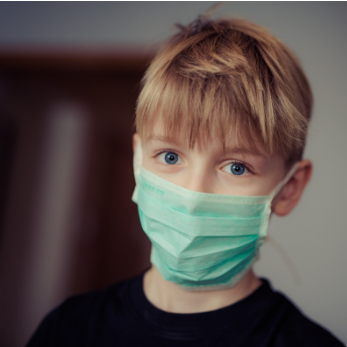Today more than ever, allergies affect our kids’ health. The Centers for Disease Control and Prevention (CDC) counts over 5.6 million kids as allergic to pollen and more than 4.8 million with food allergies.
As parents, it’s up to us to be vigilant and keep our kids safe from anything that might cause a severe allergic reaction. More and more kids travel with an epinephrine auto-injector, or EpiPen, to keep a reaction under control.
However, some reactions require much stronger treatments. Your child may need medical intervention if his or her allergy is too intense and triggers a life-threatening case of anaphylaxis, essentially a hypersensitivity reaction.
Common Allergens

One of the most common allergens is pollen. Also known as Hay Fever, this looks like a sneezing fit combined with an asthma attack. The floating spores make kids wheeze, itch, or experience some swelling in their mouth and throat, and possibly break out into a rash.
The ragweed plant and its relatives, like chamomile, can also trigger intense allergic reactions. Pay attention to any plants that produce high amounts of pollen, have toxic leaves or flowers, or kill surrounding plants, as they tend to trigger reactions in kids sensitive to pollen.
Wheat, dairy, eggs, soy, peanuts, and tree nuts can all trigger reactions after they’re eaten. Anything from an itchy throat to diarrhea and vomiting can be a sign that a child is allergic to a specific food.
You’ve likely heard horror stories about people who have allergies to bee stings, (about five percent of the population have a deadly allergy to bee stings), but what about cockroaches? This common pest can cause asthma attacks. Dust mites, mosquitoes, bed bugs, and other common bugs can also cause redness, itchiness, and swelling.
deadly allergy to bee stings), but what about cockroaches? This common pest can cause asthma attacks. Dust mites, mosquitoes, bed bugs, and other common bugs can also cause redness, itchiness, and swelling.
When to see a doctor
Be aware of any symptoms in your child the moment he or she reports feeling ill. Your child may wheeze, feel an itchy mouth or throat, or develop a rash. Normally, you can treat these symptoms with over-the-counter medication. If symptoms don’t die down or appear to get worse after your child takes treatment, it’s time to go to the hospital.
Extreme reactions may include:
- Vomiting
- Diarrhea
- Chest pain
- Heart palpitations
- Difficulty breathing
- Extreme swelling in the face or throat
Tell your doctor about anything your child ate or may have touched before the reaction occurred. Also, let your doctor know if you have already tried an EpiPen or other medications.
The staff at Victoria ER helps children manage allergic reactions 24/7, no matter what. If you ever feel your child may be in danger, come and see for assistance. In the meantime, have your child tested for any potential allergies and learn more about how to manage them from your pediatrician.


